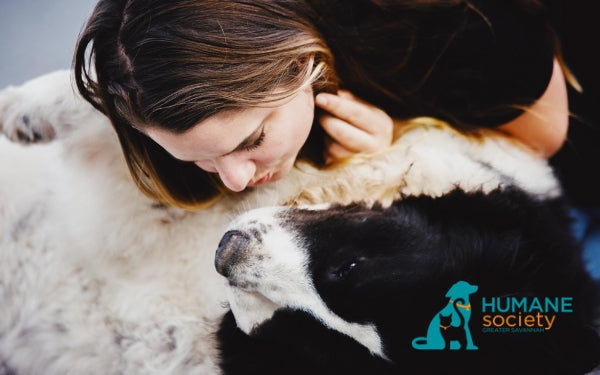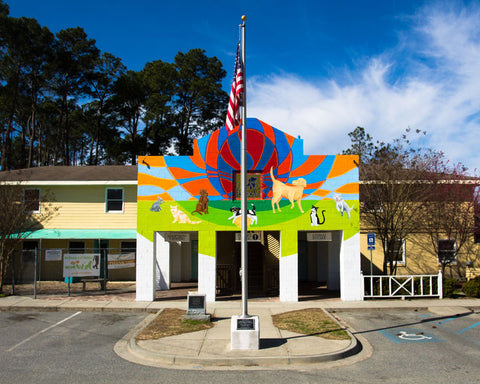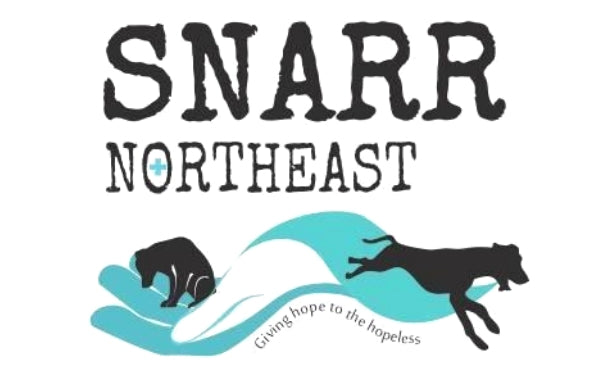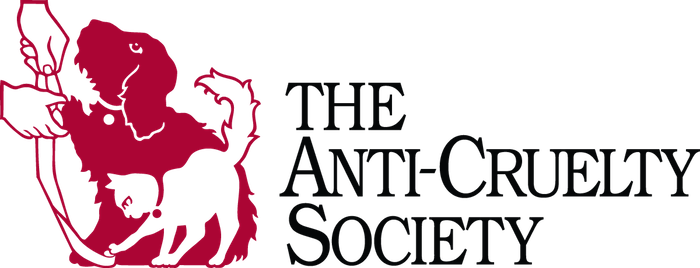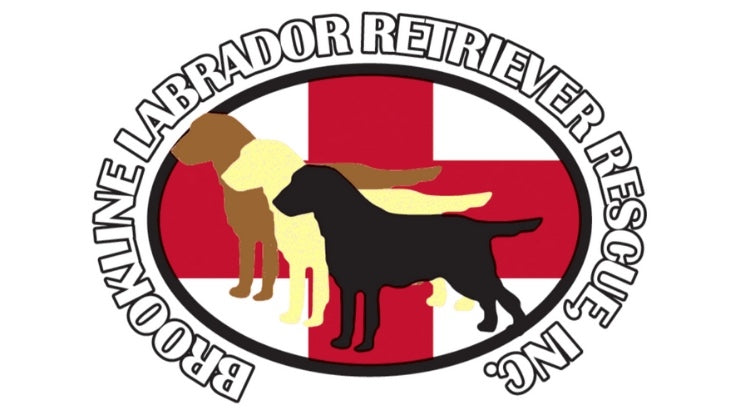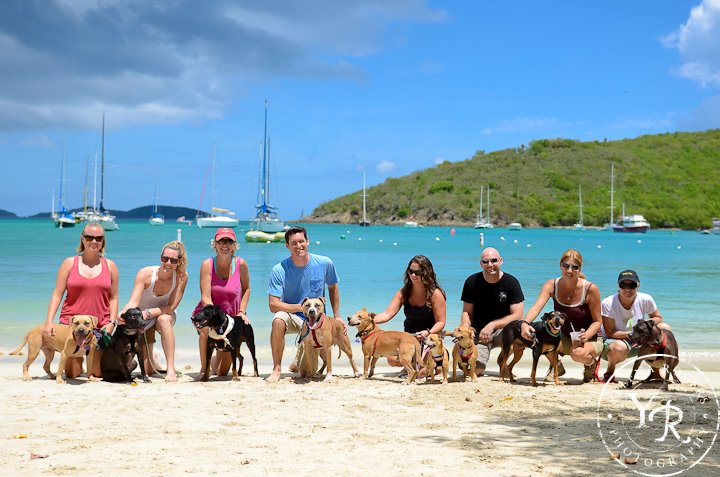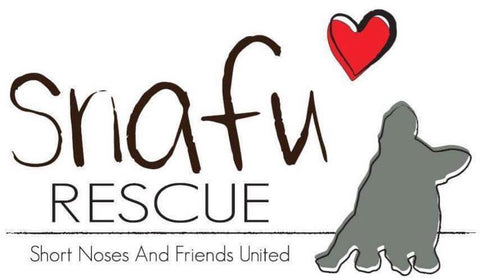Rescue Of The Month
Humane Society for Greater Savannah - Rescue of the Month, January & February 2019
Happy new year! We've selected the Humane Society for Great Savannah as our Rescue of the Month for January! We sat down with Jess Carwile, who is the Public Programs Manager for the Humane Society for Greater Savannah. Check out our discussion below to learn more about their heroic and inspiring work.
Tell us about how the Humane Society for Greater Savannah was started?
What are the biggest challenges the Humane Society for Greater Savannah faces?
Running a rescue and helping dogs can be tough, both emotionally and physically. Can you share a tough experience or trying moment for the Humane Society for Greater Savannah, and what you did to overcome it?
Do you have a network of fosters in the Greater Savannah area or are all dogs at your facility?
Primarily the dogs stay on-site, but any needing that extra bit of attention are cared for by our foster team. We could not do this without our incredible group of dedicated and knowledgeable fosters.
Where does your primary financial support come from?
As a 501(C)3 non-profit, we rely entirely on the support of the community through donations and adoptions.
How many dogs on average do you place in their forever homes annually?
In 2018 alone, we placed 661 dogs in their fur-ever homes and were able to provide behavioral training and medical attention to 38 pets that were then able to stay with their owners.
For those reading this, if they want to help fight the good fight, what can they do to help?
Donate, volunteer, foster, spay/neuter, and adopt! The smallest contribution goes a long way toward building new and improved lives for these pets. For anyone interested in supporting our mission to better the lives of pets and people, you can contribute by donating!
If you want to follow the Humane Society for Greater Savannah, like them on Facebook, check out their available dogs, and donate today.
SNARR Northeast - Rescue of the Month, December 2018
We're delighted to be working with SNARR Northeast as our Rescue of the Month for December. SNARR, which stands for Special Needs Animal Rescue & Rehabilitation, gives hope to the hopeless and takes on some of the most heart-wrenching rescues I've seen in a while. We sat down with SNARR board member Joann Burrows who shared some amazing stories and insight into this amazing rescue group.
Tell us about how SNARR was started? Is there a personal story behind SNARR’s mission?
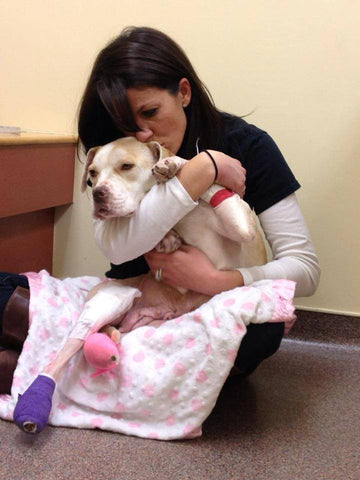
What are the biggest challenges SNARR faces?
Running a rescue and helping dogs can be tough, both emotionally and physically. Can you share a tough experience or trying moment for SNARR, and what you did to overcome it?
We were outraged! We banded together and fought for justice for Andra Grace. Our voices were heard and the man now spends his days behind bars facing a 10.5 year sentence.
Do you have a network of fosters in the area that help care for the dogs or do the dogs stay in a facility?
We recently purchased a shelter facility to continue our mission of Giving Hope to the Hopeless. We're very excited because the shelter will help facilitate adoption events, save more dogs, cut out all boarding expenses and accept donations of food and other articles constantly offered to us by corporations.
We also have an amazing group of dedicated volunteers that network together everyday - endlessly and tirelessly. There is no pay. No days off. We have fosters as far north as Massachusetts all the way down to South Carolina and across to Texas.
Where does your primary financial support come from?
All of our financial support is from donors. Every penny we have is donated. We rely solely on donations as a 501c3 non-profit.
How many dogs on average do you place in their forever homes annually?
We rescue between 450-600 dogs a year. We also have homed cats, kittens, rabbits, and even guinea pigs!
For those reading this, if they want to help fight the good fight, what can they do to help?
If you are reading this article, you care. To fight the fight, we ask you to foster, donate, or volunteer. Everyone can do their part against animal cruelty. Awareness and support to rescue groups and local animal shelters can be so rewarding.
If you want to follow SNARR Northeast's amazing work, like them on Facebook, check out their available dogs, and donate today.
The Anti-Cruelty Society - Rescue of the Month, November 2018
Our Rescue of the Month for November is Chicago-based animal welfare organization and animal shelter, The Anti-Cruelty Society. We sat down with the non-profit's very own, Christine Natarelli (CN) and Colette Bradley (CB), who both shared some great insights into this amazing organization.
The Anti-Cruelty Society has been around for nearly 120 years. Can you tell us about how it was started? Do you know if there was a personal story behind the organization's inception?
CB: The Anti-Cruelty Society was founded by Mrs. Rose Fay Thomas along with other Chicago citizens who were concerned about animals in the city. Their goals were to suppress cruelty to animals, to educate the public on humane treatment, and to create a refuge for strays, all of which are at the core of what we do today.
What are some of the biggest challenges The Anti-Cruelty Society faces?
CB: Funding is always a challenge. While we have amazing donors, sponsors, and partners, our costs are always much higher than any fee we charge for services. Our adoption prices are very affordable and do not even begin to cover the costs of feeding, housing, spaying/neutering, microchipping, and vaccinating the animals.
We also have a low-cost spay/neuter clinic that is open to the public. The cost for the surgery is much lower than what you’d find at your private veterinarian, but we believe spaying and neutering is crucial to helping keep pets out of the shelter that we are happy to offer this service at an affordable cost.
Expenses for these programs, along with many others we offer, are supplemented through donations, so it’s very important to continue to fundraise and we’re grateful to all who are able to give either monetarily or through supplies. Every bit helps!
We love how involved in the community The Anti-Cruelty Society is. It seems like you put a lot of focus and importance on education. Can you share more information about your educational programs?
CN: The Anti-Cruelty Society’s Humane Education team promotes empathy by inspiring others to show compassion. Our Humane Education team utilizes a variety of interactive approaches to educate and engage people of all ages. We are promoting kindness throughout the community with on-site programs, off-site lectures, interactive games, behind the scenes tours, animal encounters, service learning projects, and more! From toddlers and teens, to teachers and corporate groups, we have interactive opportunities available for everyone in the community.
Running a rescue and helping dogs can be tough, both emotionally and physically. Can you share a tough experience or trying moment for The Anti-Cruelty Society, and what you did to overcome it?
CB: I think anytime we receive an animal that has been abused or neglected is tough to see. We may not know exactly what happened or what the circumstances are, but the staff and volunteers that work here are so compassionate; we all feel for the animal. Seeing that animal recover emotionally and physically, and find a forever home is what keeps us all going. We know once that pet has entered our doors, we are going to do everything we can and offer compassion and love every step of the way.
Do all animals stay at your adoption facility or do you have a network of fosters in the Chicago area that help care for the dogs?
CN: Both! We are very fortunate to have a network of over 90 foster parents who house, feed, and care for animals in need throughout the year! This helps alleviate our staff’s time and our resources so we are able to help even more animals that arrive at the shelter. We also have animals on-site at our adoption center where we do same-day adoptions.
Where does your primary financial support come from?
CN: The Anti-Cruelty Society primarily receives financial support through donors, we also host special events throughout the year to raise money for our animals, we receive grants from various places, sponsorship and partner opportunities, and through third party events hosted by businesses and individuals in the community. We’re very lucky to have such amazing donors and supporters who want to help make a difference through financial support.
How many dogs on average do you place in their forever homes annually?
CB: We place about 5,000 cats and dogs in forever homes each year, about half of which are dogs.
For those reading this, if they want to help fight the good fight, what can they do to help?
CN: There are many ways to help and get involved with The Anti-Cruelty Society. Becoming a volunteer or foster, attending a special event, hosting a third party fundraiser of your own, joining our development council, helping us spread the word of our work and mission, and of course donating (both supplies and monetary donations) are just a few small ways to make a huge impact on an animal’s life!
What are the plans for the future of The Anti-Cruelty Society?
CB: The Anti-Cruelty Society has been increasing the number of animals we take in from shelters across the country. Whether they are animals that were in shelters prior to a hurricane hitting their home turf, or coming from a small shelter or rescue that does not have the same resources we can offer, we have been helping more and more animals in need from across the country. We take them in, care for them, and help find them the perfect forever home. We hope to continue this important work in the future!
If you want to follow The Anti-Cruelty's amazing work, like them on Facebook, follow them on Instagram, check out their available dogs, and donate today.
Brookline Labrador Retriever Rescue - Rescue of the Month, October 2018
Our Rescue of the Month for October is Brookline Labrador Retriever Rescue, which is an exclusively volunteer-operated rescue with a network of volunteer foster homes throughout Pennsylvania, New Jersey, and Delaware. We're so excited to be working with this amazing organization this entire month. We sat down with one of their volunteers who shared how Brookline was started, their challenges, and ways to help.
Tell us about how Brookline was started? Is there a personal story behind Brookline's mission?
Brookline Labrador Retrieve Rescue was founded in 1997 by Nicole Soyster and her husband, Mike, and is named after their family Labrador Retriever, Brooke. While many rescue organization thrive as a referral source for families looking for a dog and for those considering surrendering a family pet, Brookline has operated under a slightly different model since its inception. Nicole’s belief was that Brookline could succeed by placing dogs in its care into a network of foster homes, a setting that allows each dog to live as a family pet and one that gives the volunteer a chance to fully evaluate the dog’s temperament and behavior. Because we get to know each dog as an individual, Brookline volunteers can better match dogs to a forever home. Today, we continue this legacy, and we are proud to say that we do not just place dogs in homes … we help families welcome an additional member of their pack.
Is there a reason why Brookline is focused on labs? Do you rescue other dogs in certain situations?
Brookline is exclusively dedicated to helping families adopt Labrador Retrievers and Lab mixes. In part, Brookline is dedicated to helping place Labrador Retrievers and Lab mixes because of our founder’s fondness for the breed. But we also recognize that there is a need to help advocate for and educate about Labs: Although they can be the perfect family dog, Labs require special dedication and attention. By focusing on the needs of one breed, we have developed a specialty that allows us to be passionate and informed voices for the dogs in our care.
What are the biggest challenges Brookline faces?
Brookline is a 100% volunteer organization, which is both our greatest asset and the biggest obstacle we face. On the one hand, every dollar we raise is funneled directly to the care of our dogs. And because we are an entirely volunteer organization, there is a certain camaraderie amongst our members, because everyone feels invested and that they are part of both our successes and failures. Yet, because we lack the organizational infrastructure associated with dedicated staff members, it is often a struggle to manage resources and set aside time to attracting new volunteers—and finding foster homes is probably the single hardest challenge we face. Of course, being a non-profit organization, lack of funding for vet bills is a challenge, as well.
Running a rescue and helping dogs can be tough, both emotionally and physically. Can you share a tough experience or trying moment for Brookline, and what you did to overcome it?
In a perfect world, Brookline would be able to save every Labrador Retriever in our coverage area and help every family looking for a dog welcome home a new member of their pack. But rescue work is not a fairy tale. Often, for the sake of the dog or in the best interest of a prospective family, we have to use our best judgment and refuse a match. We know how devastating it can be to hear ‘no’ but we also know that finding a forever match takes time, dedication and patience.
Unfortunately, there are also times where our efforts are simply not enough to save a dog or help a family. Sadly, not every dog can be saved, and for some of our older dogs or those with serious medical conditions, sometimes the best we can do is to give a dog dignity in the final stages of its life. In a way, serving in this capacity is a win for our organization, because part of our mandate is to be a voice for the voiceless, but the people involved, especially if they need to make tough decisions, still get hurt.
Rescue work is hard work, and there is a lot that goes on behind the scenes that can be draining and tiring—from a leadership perspective, that includes organizing and fundraising, but the real heavy lifting is done by our volunteers, who spend countless hours caring for dogs, working with families, attending vet visits, helping out at events and making sure our organization runs smoothly. Our volunteers really go above and beyond, including generously reaching into their own pocket to help cover expenses. Overall, we succeed more often than we “fail” (for lack of a better word), but that does not diminish the pain associated with not accomplishing everything we want. And yet, those tough times are also when our volunteers seem to naturally come together to support one another.
Do all dogs stay with fosters in the area or do you also have a facility where some dogs stay?
Brookline operates as a network of volunteer foster homes throughout Pennsylvania, New Jersey, and Delaware. Our foster families take on a lot of responsibility and they are the sole reason we are successful. Organizations that house animals in a central facility can be successful, and they often are, but our model is really predicated on giving dogs a chance to live in a foster home, which allows their personality to blossom outside of captivity and lets our volunteers learn what will be the best forever home for that dog. Less frequently, a dog being surrendered will continue to live with its family until we find a suitable new home. In either case, it is the personal touch we offer that makes us unique and different.
Where does your primary financial support come from?
We do not have a primary source of financial support. Brookline relies on donations—throughout the year and during our annual appeal—and sponsors events, such as our online auctions in the Spring and Fall and our Lagers for Labs in May, to help raise money. We also attend numerous events throughout the year where we sell merchandise to raise money to help our labs.
How many dogs on average do you place in their forever homes annually?
Brookline places approximately 100 Labs and Lab mixes per year.
For those reading this, if they want to help fight the good fight, what can they do to help?
Volunteer! Foster! Donate!
What are the plans for the future of Brookline?
We are always looking to increase the number of Labs and Lab mixes that we can help. Eventually, we may have our own kennel facility, but in the meantime, the more foster homes we have, the more labs we can help. We have attracted a wide array of very dedicated volunteers, and each individual brings something unique and special to our organization. But we could always use more help advocating for, educating about and saving Labrador Retrievers and Lab mixes!
If you want to learn more about Brookline Labrador Retriever Rescue, like them on Facebook, check out their available dogs, and donate today.
Rocket Dog Rescue - Rescue of the Month, September 2018
Pali Boucher started Rocket Dog Rescue in 2001 with the mission of helping create a world where all companion animals having loving and permanent homes and where no good natured dogs, no matter what their age, are killed because they are considered to be surplus or un-adoptable. Boucher's story is truly inspirational, and we are so honored to name Rocket Dog Rescue as our Rescue of the Month for September.

Before starting Rocket Dog Rescue, Pali was homeless living on the streets of San Francisco. Growing up, her mother struggled with drugs, mental illness and was homeless. Pali's mother had passed away when she was 10. For a short time after, she was in foster care, then with her dad, and then back on the streets.
While homeless, she would visit the dogs at the San Francisco SPCA, which at the time was a kill shelter. She would say hi to the dogs and give them some attention. "I wasn’t looking to adopt. But there was this one hound dog always baying at the top of his lungs. I fell in love. So somehow, I got the money, faked an address and adopted him," Pali recalls. His name was Leadbelly.
Taking care of a dog while homeless can come with significant challenges, and Pali unfortunately faced many of them. She was in and out of jail and was very close to losing Leadbelly a couple times. This was when she realized she needed to make a change in her life and decided to enter a drug program. Pali found a friend who would care for Leadbelly during her recovery. About a year later, she was clean and sober and had Leadbelly back in her life. It was at this time that Pali's subsidized housing was approved, and she was so grateful to have a roof over her and Leadbelly's heads.
Pali spent the following years fostering many dogs. Sadly, Leadbelly died in 2001, but with his passing came an idea. "I wanted to go the next step and create my own nonprofit. My core group of about 10 friends became my board of directors and volunteers. Rocket Dog Rescue is a tribute to Leadbelly. He helped me learn how to take care of myself by taking care of him," said Pali.
For more than a decade, RDR operated without a facility and was solely dependent on their network of fosters around the Bay Area. After much hard work, dedication, and fundraising, Rocket Dog Rescue was able to open their own Urban Sanctuary and Adoption Center in Oakland, California in 2014.

RDR has saved over 10,000 dogs from euthanasia in overcrowded Bay Area shelters and is exclusively volunteer run and operated. We'll be donating $1 or more for every product purchased from Neptune & Co. to Rocket Dog Rescue for the entire month of September. You can donate directly by clicking here, and can follow RDR on Facebook and Instagram. If you're looking to adopt a dog, check out their available dogs here.
Animal Care Center of St. John - Rescue of the Month, August 2018
St. John is the smallest of the three main U.S. Virgin Islands in the Caribbean Sea with a population of around 16,800 people. As such, the island faces overpopulation problems of dogs and cats. The Animal Care Center was started to combat this problem and help educate the community about animal care. It is with great pleasure to name the Animal Care Center (ACC) of St. John as our Rescue of the Month for August.
We sat down with the ACC's Assistant Manager, Asya Simons, to learn more about the organization's challenges, a particular rescue story, and a look into the future.
Tell us about how the Animal Care Center of St. John was started?
The Animal Care Center was started in order to address the problem of abused, abandoned, unwanted and feral animals on the island of St. John. Being such a small island, issues concerning cats and dogs tend to multiply and grow out of hand in a very short period of time, so an organization was needed to not only address the animals directly, but also to educate and empower local individuals to create a lasting impact on future generations.
What are the biggest challenges the rescue faces?
One of the biggest issues we face is a lack of education in the community concerning animal care. We work hard to educate local residents on how to care for their pets, including preventing diseases such as heartworm, which is rampant in the Virgin Islands. We also help residents provide basic care by offering low-cost dog and cat food, and free flea, tick and heartworm medications. We are also faced with a number of animals who come to our facility with severe behavior problems due to abuse or neglect. We are working to address this problem by implementing a new clicker training program with our staff!
Running a rescue and helping dogs can be tough, both emotionally and physically. Can you share a tough experience or trying moment for the ACC, and what you did to overcome it?
It is always difficult when we take in animals, normally dogs, who have been severely neglected or abused. The time and energy those individuals require to trust people again can be immense, and there are times when it feels hopeless. We had one dog, Joplin, who came to our facility at around 1 year old after being neglected almost to the point of starvation. Our manager, Ryan, went with the local veterinarian to the abandoned building where she was living literally in her own waste, and she was all teeth, completely terrified. After being sedated, treated, and transferred to the ACC, Joplin dealt with a number of behavioral issues such as food aggression, and fear-based aggression towards anyone she wasn’t familiar with. It could take weeks for new staff members to be able to approach her without growling. With the constant love and special attention she received, she did slowly learn to trust people again, and came to be one of our favorite residents!
Do you have a network of fosters in the local area that help care for the dogs or do all of the dogs stay in your facility?
The majority of the dogs that come into our care stay at our facility until we are able to place them into homes, as the majority of our adoptions go to the mainland through tourists who fell in love with a dog they walked during their time volunteering. However, we do have a handful of residents on the island who will regularly foster dogs to help them experience a home life, and the community always steps up to help when we have a resident who needs to be in foster care due to age or medical needs.
Where does your primary financial support come from?
Our financial support comes from donations from supporters around the country. We hold a number of fundraising events throughout the year, such as our annual Gala and Wagapalooza, our local dog show, but we also receive donations from tourists who visit the island and come by to get their dose of puppy love!
How many dogs on average do you place in their forever homes annually?
We generally have between 70 and 100 dogs come through our facility in a year, but since Hurricanes Irma and Maria hit the Virgin Islands last September, we have seen almost three times that number, largely due to families who lost everything, and needed to give their furry companions the chance at a better future.
What are the plans for the future?
Last year we were fortunate enough to pay off a piece of land that we can finally call our own! We are working on completing building plans for a new facility that will allow us to expand the number of animals we can care for, increase the level of care we are able to provide, and create new opportunities for volunteers.
If you want to donate directly to the Animal Care Center of St. John, you can here. You can also follow their amazing efforts on Facebook.
Fresno Bully Rescue - Rescue of the Month, July 2018
For the month of July we're excited to name the incredible Fresno Bully Rescue as our Rescue of the Month! We sat down with Bridgette Boothe, who is the executive director of Fresno Bully Rescue to learn more about the early days, the struggles, and the future.
Fresno Bully Rescue, or FBR, was founded by a small group of people in 2008 just after the California housing market crash. At the time, many people were forced out of their homes and into rental properties. Many landlords did not allow pit bulls to live in their rentals, resulting in an unfortunate influx of pit bulls being surrendered to shelters. The founders of FBR felt like they needed to help and started the organization.
Breed discrimination has been a constant struggle for the rescue. "Housing restrictions limit how many homes we can adopt to. Breed restrictions & discrimination is still very much an issue although its improving. People's feelings about the breed are very black or white. They either love them or hate them. A lot of education is still needed and this is part of our ongoing mission," says Bridgette.
FBR goes above and beyond just rescuing dogs. They provide additional programs including educational, therapy, and volunteer services. The educational services focus on basic breed education and pet care, how to approach a dog safely, how to read an animal's body language for dog bite prevention, dog fighting, abuse, neglect, the importance of spaying and neutering and the consequences of backyard breeding. With regard to therapy services, FBR brings certified shelter dogs to senior assisted living facilities, homeless care facilities, and disabled veterans programs at no cost. The rescue also hosts monthly volunteer orientations for people interested in making a difference in the community.
Running a rescue can be incredibly rewarding, but also very trying, both emotionally and physically.
"Not being able to help all of the dogs in need can be overwhelming. Having to say "no" to the many awesome dogs needing rescue when you simply don't have the space or resources can be pretty discouraging. It sometimes feels that you are mowing a football field with scissors - never-ending. But focusing on the ones you are able to save and help is what keeps you going forward. Seeing the life change for even one dog is worth it," says Bridgette.
Fresno Bully Rescue houses around 40 rescue dogs at any time in their facility and works with local foster caretakers throughout the California Central Valley for other dogs they rescue. Each year FBR rescues an average of around 170 or so dogs, and are solely dependent on private donors and community support.
As for the future, FBR plans on continuing to grow their programs and spread the importance of spay and neutering. If you'd like to donate to Fresno Bully Rescue, click here. Please also follow them on Facebook, Instagram, or check out their available dogs here.
The Vanderpump Dog Foundation - Rescue of the Month, June 2018
British restaurateur, author, actress, and television personality Lisa Vanderpump has added "animal rights activist" to her long list of accomplishments. In 2015, after witnessing the horrific images of slaughter and abuse of dogs in preparation for the Yulin Dog Meat Festival, which in an annual event in Yulin, China, Lisa was determined to do something about this. Executive Director, Dr. John Sessa, recalls,
"[Lisa] immediately started emailing me and calling her husband Ken to see what we could do about it. We immediately made a PSA with Sharon Osborne, executed a large demonstration in front of the Chinese Consulate and made several trips to Washington DC to lobby for House Resolution 401, which we helped author."
It was around this same time that Lisa, Ken, and John realized the huge dog homeless and overpopulation problem occurring in their own backyard in Southern California. In Los Angeles alone, over 3,000 dogs are euthanized in city and county shelters each year. The three knew they had to help, so they started The Vanderpump Dog Foundation in 2016 and opened the Vanderpump Dogs Los Angeles Rescue Center just over a year ago. The Rescue Center is swanky and brings the "Vanderpump" flare and style complete with jazz music, velvet couches, and even chandeliers.
Check out our Q&A with Dr. Sessa below:
What are the biggest challenges Vanderpump Dogs faces?
 Dr. Sessa: We have been able to become a huge voice for the voiceless in a very short amount of time and I think our biggest challenge is keeping up with the demand for help. We get hundreds of calls and emails every day about dogs domestically and around the world that need our assistance. It is our duty to make sure we are a source for information and resources for everyone reaching out to us and help as many as we can.
Dr. Sessa: We have been able to become a huge voice for the voiceless in a very short amount of time and I think our biggest challenge is keeping up with the demand for help. We get hundreds of calls and emails every day about dogs domestically and around the world that need our assistance. It is our duty to make sure we are a source for information and resources for everyone reaching out to us and help as many as we can.
Running a rescue and helping dogs can be tough both emotionally and physically. Can you share a tough experience or trying moment for the organization, and what you did to overcome it?
Dr. Sessa: We have a very dedicated and compassionate team, who strive to help every dog who needs our assistance. I think the biggest struggle and experience we have to continually get over is the inability to help every dog that comes our way. I just always remind the staff that we can help as many dogs as possible today and with our larger legislation and education efforts, we will eventually be able to effect change on a long term and be able to help all dogs. Dealing with loss is always difficult, but a part of the job when rescuing.
Do all of the dogs you rescue stay in the Rescue Center or do you have a network of fosters in the LA area that help care for the dogs as well?
Dr. Sessa: We do a combination of both fosters and in-house dogs. Our volunteers and fosters have become such an important part of running the non-profit and making sure to keep expenses at a minimum.
Where does your primary financial support come from?
Dr. Sessa: Originally our financial support was solely from Ken and Lisa, which can get tasking and expensive. Thankfully, the model that we have built has a revenue producing entity with our grooming, retail and adoptions. This contributes to about half of our total overhead, our annual fundraisers (World Dog Day and our Gala) produce a significant portion and our wonderful donors contribute the rest.
How many dogs on average do you place in their forever homes annually?
Dr. Sessa: The first year of operations, we successfully rescued and rehomed 500 dogs. Our goal is to double that this year!
For those reading this, if they want to help fight the good fight, what can they do to help?
Dr. Sessa: I suggest they go to www.vanderpumpdogs.org and help our efforts by building your own fundraising team or join one of our existing teams. We have competitions for groups to win prizes, as well as, raise money for our dogs - so it is a win win! Also - there are several other ways to show your support and they are listed on the website.
What are the plans for the future of Vanderpump Dogs?
Additionally, we are continuing our rescue efforts locally (hoping to double our adoption numbers from last year) and internationally, bringing much needed supplies for dogs to third world and impoverished countries.
In the long term, we would like to eventually open a sanctuary and rescue operation in Malibu on a significant parcel of land.
If you want to help this amazing organization, you can donate here, check out their adoptable dogs, and follow them on Instagram and Twitter.
Family Dog Rescue - Rescue of the Month, May 2018
We are incredibly honored to feature Family Dog Rescue as our Rescue of the Month for May. The story behind this amazing organization is truly inspiring and a testament to the power of a dog's love.
 Angela Padilla had to fight for her own life before she could fight for the lives of dogs. She was diagnosed with a very aggressive and high-risk form of breast cancer in 2002 when she was only 36 years old. During her cancer treatment, Angela started working for rescues and shelters in San Francisco and spent every afternoon socializing dogs. She also eventually became a foster for hundreds of homeless dogs.
Angela Padilla had to fight for her own life before she could fight for the lives of dogs. She was diagnosed with a very aggressive and high-risk form of breast cancer in 2002 when she was only 36 years old. During her cancer treatment, Angela started working for rescues and shelters in San Francisco and spent every afternoon socializing dogs. She also eventually became a foster for hundreds of homeless dogs.
Angela noticed that there was a symbiotic relationship between herself and the dogs. Looking back, she almost feels like she was rescued by the dogs she helped and not the other way around.
"Saving dogs helped save my life. The profound love that rescue dogs give to the people who save them helped me win my battle with breast cancer," says Angela.
Determined to go into remission after fighting cancer for a year, Angela returned to work. She noticed the curative role her rescue dogs, Hooch, Molly, and Sparkle, played in her recovery and was determined to help find amazing homes for great dogs. In 2010, she decided to start her own rescue, Family Dog Rescue, focused on making it easier for families to adopt a dog.
Family Dog Rescue is a kennel-free shelter in San Francisco, which houses most of their dogs, but some of their dogs are placed in loving homes within their trusted foster network. As a 501(c)(3) non-profit, they are entirely supported by individual and corporate donations. "We are an organization with a large heart but a small budget. Our biggest challenge is meeting our financial goals to rescue, provide medical care and re-home over 800 deserving pups each year," says Angela.
As Family Dog Rescue looks to the future, they hope to soon be able to sponsor mobile spay/neuter clinics in under-served areas of California. If you want to help this amazing organization, you can donate here, check out their adoptable dogs, and follow them on Facebook and Instagram.
SNAFU Rescue - Rescue of the Month, April 2018 & October 2019
After volunteering for a national French Bulldog rescue in 2010, Megan Gates started learning what "the world of rescue" meant and stood for. What she learned changed her life forever.
After attending several commercial breeder dog auctions and finding out the eye-opening truth, Megan started to spread the knowledge she had gained. In 2013, she founded SNAFU (Short Noses And Friends United) Rescue and decided to do what she could to help the dogs in the commercial breeding system.
SNAFU does this by networking with commercial and private breeders for breeder releases. The organization also raises money in order to attend commercial breeder auctions and purchase dogs to free them from the commercial breeding system. It is a tough balance of bidding responsibly in order to help dogs in need but also not contributing to the problem.
Based on their name, SNAFU primarily rescues English and French Bulldogs. "There are many breed specific rescues around, and some of the other breeds already had rescues. Due to our love of short noses and the need for a rescue, we decided to focus mostly on them," said Megan.
As a 501(c)(3) non-profit organization, SNAFU receives most financial support from individual donors and fundraising activities. This is also one of their biggest challenges, as they continuously need financial resources to cover many vet bills and expenses that are incurred.
All dogs rescued by SNAFU are cared for by foster homes as they organization does not have a facility. On average they rescue between 25-30 dogs a year, but they are starting to grow significantly. "We would love to continue to grow and assist as many dogs as we can by helping get them out of the commercial breeding system, and helping any dogs who are unwanted in their current homes. We do also take on a few dogs who are surrendered due to behavioral issues. We will continue to educate and make an impact in the lives of short noses in need."
If you want to help support SNAFU's amazing work, donate today. You can also like them on Facebook. All donations from purchases made during the month of April will go to SNAFU.

